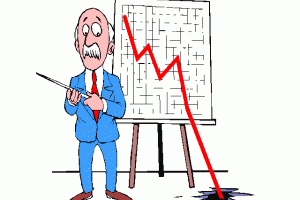Six Ways Existing Economic Models Are Killing the Economy
The American Prospect
 A recent “Spreadsheet Scandal” has rocked the economics world. It has eliminated the last remaining technical argument in support of the President’s “chained CPI” Social Security cut. Earlier this year the IMF admitted they had made errors in their modelling of expenditure multipliers. Now, the darlings of the austerity cultists – Rogoff and Reinhart – has been exposed for errors in spreadsheet coding. Who is ever going to take responsibility for these travesties?
A recent “Spreadsheet Scandal” has rocked the economics world. It has eliminated the last remaining technical argument in support of the President’s “chained CPI” Social Security cut. Earlier this year the IMF admitted they had made errors in their modelling of expenditure multipliers. Now, the darlings of the austerity cultists – Rogoff and Reinhart – has been exposed for errors in spreadsheet coding. Who is ever going to take responsibility for these travesties?
Spread the word